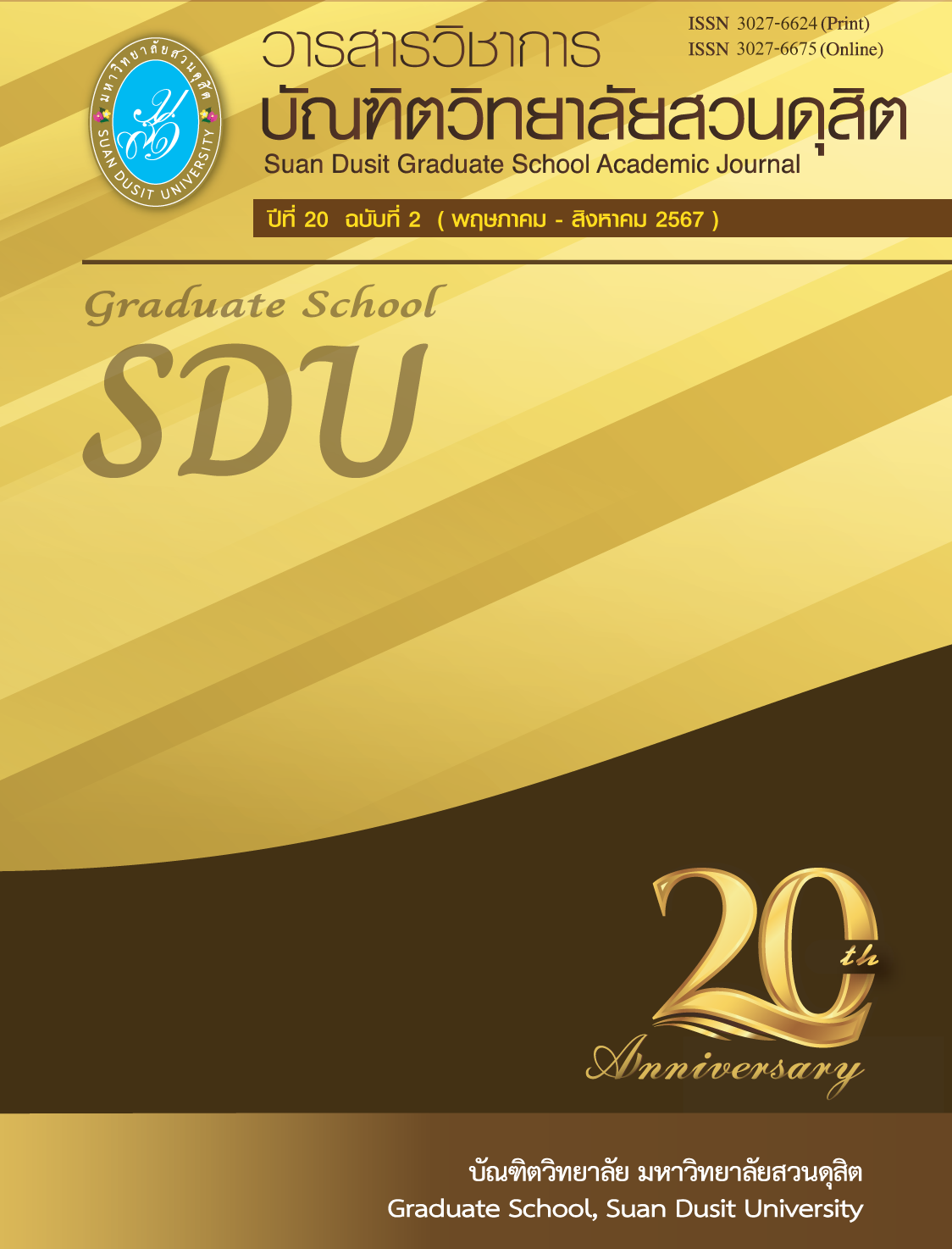The Legalization of Gambling in Thailand
Keywords:
Guidelines Recommendations, Legal Gambling, The Gambling Act B.E. 2478Abstract
This qualitative research aimed (1) to study the problems and obstacles of gambling under the Gambling Act B.E. 2478 regarding Thai society, (2) to explore the impacts of the legalization of gambling on the state and Thai society in Thailand, and (3) to provide recommendations for appropriate gambling management guidelines in Thailand. The theory of social learning and imitation was applied as a base in this study. The data collection was conducted through in-depth interview with 25 key informants including professional practitioners, police officials, lawyers, administrative officials and religious organization representatives affected by gambling. The data were analyzed by using content analysis. The results indicated that the problems occurred due to Gambling Act B.E. 2478, which had been used for more than 80 years and become outdated with maximum fine of no more than 5,000 Baht. There was no measure to support and manage a new form of gambling. Gambling regulations should specify new types of gambling offenses, amend the Gambling Act B.E. 2478, use other types of punishment, and amend fines in section 12, section 13 and section 14 of the Gambling Act B.E. 2478 The results of this research allowed the government to be aware of the adjustment needed for making Gambling Act B.E. 2478 to be more modern and relevant to the current context of Thai society as well as establish further measures. It also provided people in Thai society with ways to enhance knowledge, understanding, and attitudes toward gambling.
References
ชาตบุษย์ ฮายุกต์. (2559). การบังคับใช้กฎหมายควบคุมการพนันออนไลน์: ศึกษากรณีเกมสังคมออนไลน์. วิทยานิพนธ์นิติศาสรมหาบัณฑิต คณะนิติศาสตร์ สถาบันบัณฑิตพัฒนบริหารศาสตร์.
ไทยรัฐออนไลน์. (2563). การพนันล้ำหน้าสู่ 5.0 เข้าง่ายกระตุ้นลุ้นถี่ๆ. สืบค้นเมื่อ 20 กันยายน 2566 จาก https://www.thairath.co.th/news/local/bangkok/1923996.
นิศากร อุบลสุวรรณ. (2557). การกระทำผิดซ้ำคดียาเสพติดของผู้ต้องขังหญิงเรือนจำกลางนครศรีธรรมราช. วิทยานิพนธ์ศิลปศาสตรมหาบัณฑิต คณะศิลปศาสตร์ มหาวิทยาลัยสงขลานครินทร์.
ประหยัด พวงจําปา. (2537). ปัจจัยที่มีผลต่อการทำผิดซ้ำของผู้ถูกคุมความประพฤติ. วิทยานิพนธ์ศิลปศาสตรมหาบัณฑิต คณะสังคมศาสตร์ มหาวิทยาลัยเกษตรศาสตร์.
ไพศาล ลิ้มสถิต, เชษฐ รัชดาพรรณาธิกุล และจุมพล แดงสกุล. (2556). มาตรการทางกฎหมายเพื่อป้องกันและแก้ไขปัญหาการพนันในต่างประเทศ. กรุงเทพฯ: สำนักงานกองทุนสนับสนุนการสร้างเสริมสุขภาพ.
วรากรณ์ สามโกเศศ. (2558). Global Change 2. กรุงเทพฯ: โอเพ่นเวิลด์ส.
สำนักวิจัยและพัฒนาระบบงานราชทัณฑ์. (2556). ปัจจัยที่ส่งผลให้ผู้ต้องขังกระทำผิดซ้ำ. กรุงเทพฯ: สำนักวิจัยและพัฒนาระบบงานราชทัณฑ์.
สุพิศาล ภักดีนฤนาถ. (2556). 4 Dimensions การบริหารงานสืบสวน: กองบังคับการปราบปราม. นนทบุรี: กรีนแอปเปิ้ลกราฟฟิคปริ้นติ้ง.
องอาจ ชัยเพชรโยธิน. (2541). การบังคับใช้กฎหมายการพนัน ศึกษากรณีทายผลการแข่งขันฟุตบอล. วิทยานิพนธ์นิติศาสตรมหาบัณฑิต คณะนิติศาสตร์ จุฬาลงกรณ์มหาวิทยาลัย.
Betting, G. (2015). Global Gaming Report 2013. Global Betting & Gaming Consultants (GBGC). London: Global Betting & Gaming Consultants.
McMillen, J., Marshall, D., Murphy, L., Lorenzen, S., & Waugh, B. (2004). Help-seeking by Problem Gamblers, Friends and Families: A Focus on Gender and Cultural Groups. Canberra: ACT Gambling and Racing Commission.
Miller, N. E., & Dollard, J. (1941). Social learning and imitation. New Haven: Yale University.
Downloads
Published
How to Cite
Issue
Section
License
Copyright (c) 2024 Suan Dusit Graduate School Academic Journal

This work is licensed under a Creative Commons Attribution-NonCommercial-NoDerivatives 4.0 International License.






